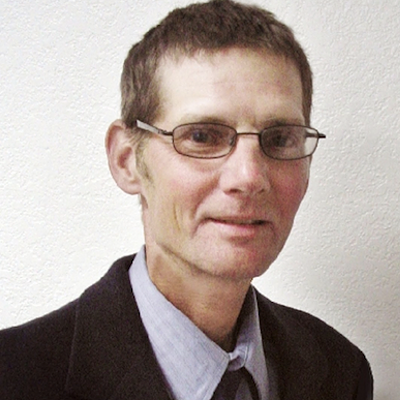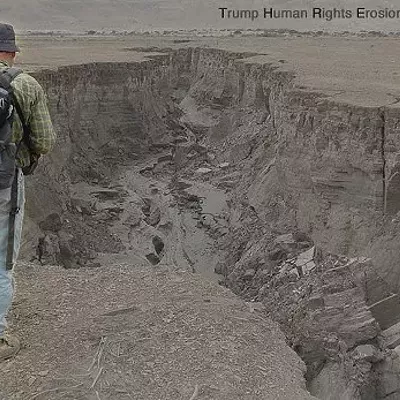Then there are services: your CPA adds 5.6 percent in state sales tax and your lawyer and doctor are forced to do the same. And what tax breaks, now under the euphemism "exemption," should the wealthiest continue to receive at their country clubs?
All that has been pulled out of the cloistered sessions at the Capitol and into living rooms as state politicians stumble around to find ways to plug a half-billion-dollar hole in the state budget that could reach $1 billion next year.
It is complicated enough that few in public office and even fewer of the candidates understand the state's convoluted tax system.
Several issues are clear. Arizona's explosive growth has swelled demand for services--roads, schools, parks, health care, cops, courts--while state and local government budgets have become vulnerable to recession.
Led by J. Fife Symington III, the Republican governor whose second term was cut short by a 1997 criminal conviction that was subsequently overturned, legislators whacked $1.2 billion in annual taxes. The cuts came in personal and corporate income taxes, business equipment taxes and elimination of the state property tax.
Symington and his allies axed the state property tax, which amounted to $47 on a $100,000 home, in 1996 amid great fervor of fiscal restraint.
The tax cutters' press men wildly overstated the savings. More important, the cut was meaningless for more than 8 in 10 homeowners in Tucson and more than half of Pima County homeowners. High county and Tucson Unified School District taxes already put those homeowners above the state cap for primary property taxes that are used to pay for daily government operations.
Homeowners' primary tax rates for the county, city and schools cannot exceed $10 per $100 of assessed value, or $1,000 for a $100,000 home. The total primary rate this year for a home in Tucson and TUSD is $10.87 per $100 and $10.66 in TUSD outside the city. Reinstatement of the state's primary property tax would not be paid directly by the homeowner in TUSD but would come from the state's general fund.
It is a form of tax equity that no one is willing to push because only homeowner property and not business or speculative vacant land benefits from the property tax cap.
Backers of the tax cut say that it has spurred business expansion. But the state could have raised $163 million from the 47-cent property tax this year and more than $800 million had it been in place over the last seven years. In Maricopa County alone, the tax would generate more than $100 million this year.
The Symington-led Legislature and voters also approved reductions in business equipment taxes, moves that especially helped small business by eliminating tax on the first $50,000 of equipment. Business leaders are pressing for a full repeal of taxes on equipment, saying it thwarts expansion and recruitment.
And although the state now relies on its sales tax of 5.6-cents per dollar for about half of its revenue, resurrection of that general property tax is made all the more unlikely because state law that requires a two-thirds majority of the Legislature.
The same law will make tax increases, cloaked under a banner of "tax reform by nearly every political candidate, as difficult as former Republican legislator Carl Kunasek's perennial wrestling with ice cream taxes.
Outgoing Senate President Randall Gnant, a Scottsdale Republican, has issued a proposal to help balance the budget that includes $150 million in cuts to state agencies.
Gnant, according to one insider whose livelihood depends on legislative action, is a "bitter lame-duck who wants to rub their (officeholders') noses in the budget crisis" rather than allow the new governor and new Legislature to make the fixes next year.
Gnant's proposal also would jack up taxes on insurance premiums for indigent health care to raise $35 million, transfer $64 million in unspecified special funds, reduce education tax credits (tax deductions allowed for cash contributions to the school of your choice) to save $20 million, freeze payments to hospitals, clinics and doctors treating indigents to save $14 million, and eliminate $38 million from school building maintenance. A final proposal is a little more popular, at least in Pima County. It would withhold $30 million in taxes that Maricopa County says it is owed.
Taxpayers may see other shifts--they may be forced to pay taxes for similar services out of different pockets. Lame-duck Republican Governor Jane Dee Hull has threatened reduction in the shares of income and sales taxes that municipal governments receive. Any shift would be treated like a tax increase and must receive a two-thirds majority vote.
City and county officials promise increased local taxes to cover any reduction of state shared revenue.









